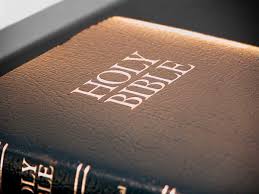The more I study the Bible, the more I realize how little I know about it.
The more I study the Bible, the more I realize how dangerous this book really is.
The more I study the Bible, the more I begin to see why the medieval Catholic church did not allow the average person to read and interpret it.
The more I study the Bible, the more I begin to wonder how much the Bible has truly influenced my theology, versus how much my theology has influenced my reading of the Bible.
The more I study the Bible, the less confident I am in saying that my theology is based on scriptural exegesis.
The more I study the Bible, the more confused I get by it.
Anybody out there know what I am talking about? Please tell me I am not the only one who is beginning to feel this way…

Some History of My Bible Study
Maybe some history is in order…
When I first began this website about 15 years ago, I wanted it to be a place where I posted my sermons and Bible studies. You can still see some of those here: Old Sermons by Jeremy Myers.
Somewhere along the way, my life fell apart, and I began to question a lot of things. To help me sort things out, I decided to question all the theology I had ever been taught. Things were going well, until I started to question everything I had been taught about the Bible…. then everything fell apart.
So I put aside that project, and decided that I needed to just study Scripture and let it re-teach me all my theology…
A few years later, I thought I had finally settled somewhere new, and decided to return to my life goal of writing a commentary on every book of the Bible.
I got half-way through the book of Jonah, when I asked myself the dangerous question, “Did God really send the storm which nearly killed everybody on board the ship?”
This led me off on a wild rabbit trail of trying to make sense of all the violence of God in the Bible in light of the death of Jesus on the cross. However, I eventually gave up (several times) on this as well. Scripture said what it said, and I could find no way around it.

So now I am writing on something “safe”: The debate between Calvinism and Arminianism. Ha!
The truth is that I think I need to go all the way back to the beginning and start over with the Bible.
What is the Bible?
The problem appears to be that the Bible may not be what I think it is.
Or maybe I can put it this way: The Bible doesn’t do what I want it to do. The Bible does not provide what I want it to provide. The Bible I want does not seem to be the Bible I have.
This is why I have been reading a lot of books recently about Scripture. I know other scholars and theologians are asking similar questions, and I want to know what they are thinking on these issues.
Peter Enns and HarperOne recently sent me a review copy of his newest book called The Bible Tells Me So. I reviewed this book yesterday.
For now, I found the book incredibly encouraging and hopeful, but at the same time, not too helpful. Or maybe, I just didn’t like the answers that Peter Enns offered, and it will just take some time to come to terms with it.
How Do you Study the Bible?
Do you struggle with Scripture? Where are you at on the whole discussion of inerrancy, inspiration, and the authority of the Bible? Have you read any good books on the topic recently which really helped sort things out for you? Please share your thoughts in the comment section below.





 The first is Romans 1:2, but there the word Paul uses for “holy” is hagiais instead of the normal word for divine holiness, hierais. The same usage applies to Romans 7:12 where Paul speaks of the “holy law.”
The first is Romans 1:2, but there the word Paul uses for “holy” is hagiais instead of the normal word for divine holiness, hierais. The same usage applies to Romans 7:12 where Paul speaks of the “holy law.” 
 Of course, do we Christians really believe that Jesus was right? It often seems that we do not. We often seem so intent on believing the right things, and knowing the right things, and doing the right things, and forcing other people to believe, know, and do the right things also, that we neglect to actually show love.
Of course, do we Christians really believe that Jesus was right? It often seems that we do not. We often seem so intent on believing the right things, and knowing the right things, and doing the right things, and forcing other people to believe, know, and do the right things also, that we neglect to actually show love.
 Of all the violent texts in the Old Testament, the portrayal of the flood in Genesis 6–8 may be the most difficult text to understand.
Of all the violent texts in the Old Testament, the portrayal of the flood in Genesis 6–8 may be the most difficult text to understand. Aside from the grim image of every living thing on earth gasping for breath and choking on water as they sink beneath the waves, the flood story also paints a troubling portrait of a God who seems incompetent because He regrets that He made mankind (Didn’t He know this would happen?), and who then foolishly tries to solve the world’s addiction to evil and violence by committing the greatest atrocity of all: worldwide genocide. One author describes the story with these words:
Aside from the grim image of every living thing on earth gasping for breath and choking on water as they sink beneath the waves, the flood story also paints a troubling portrait of a God who seems incompetent because He regrets that He made mankind (Didn’t He know this would happen?), and who then foolishly tries to solve the world’s addiction to evil and violence by committing the greatest atrocity of all: worldwide genocide. One author describes the story with these words: